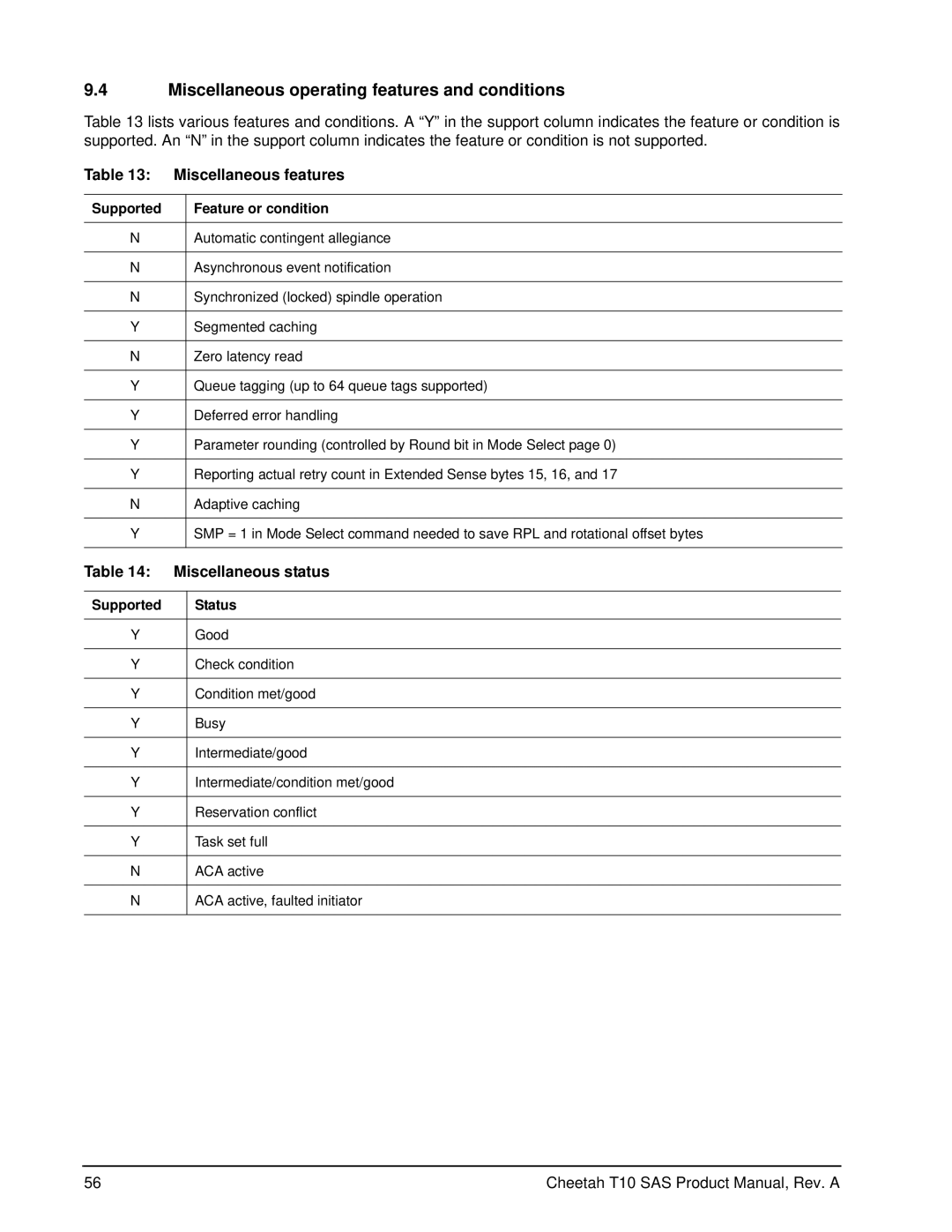ST3300555SS, ST3146755SS, ST373355SS specifications
The Seagate ST373355SS, ST3146755SS, and ST3300555SS represent a range of high-performance hard drives designed for enterprise applications, particularly in server environments requiring reliability, speed, and high capacity.The ST373355SS is a 73.5 GB SCSI hard drive operating at 15,000 RPM, which ensures rapid data access and superior performance, making it ideal for transactional applications and data-intensive tasks. With its 4 MB cache, the drive leverages fast read and write speeds, enhancing overall system responsiveness. The SCSI interface, operating at 80 MB/s, allows for high-speed data transfers, making it a suitable choice for demanding environments where quick access to information is critical. Its hot-swappable feature enables maintenance without shutting down the system, maximizing uptime and productivity.
The ST3146755SS, with a capacity of 146.8 GB, builds on the performance of its predecessor while introducing improvements in data handling and reliability. Operating at the same impressive 15,000 RPM, this model also features a 16 MB cache that greatly improves data throughput and access speed. The drive is designed to reduce latency, which is crucial for applications where timing is everything. It is equipped with advanced error recovery features and Seagate’s innovative PowerTrim technology, which improves power efficiency during read and write operations. The ST3146755SS also features a higher mean time between failures (MTBF), underscoring its reliability in high-demand environments.
Lastly, the ST3300555SS offers even greater capacity with 300 GB. This drive maintains the 15,000 RPM rotation speed and benefits from a 16 MB cache, providing a balance of speed and storage capacity. Its advanced SCSI interface supports not just speed but also data integrity, ensuring consistent performance during extensive data transfers. The drive is designed to handle workloads naturally associated with enterprise servers, data warehouses, and video editing applications. Its rugged build supports continuous operation and is tested for high-temperature environments to ensure durability.
In summary, the Seagate ST373355SS, ST3146755SS, and ST3300555SS hard drives are engineered for enterprise environments, combining impressive RPM speeds, significant storage capacities, and advanced technologies to deliver reliability, performance, and efficiency for critical applications. These hard drives represent Seagate's commitment to providing solutions that meet the rigorous demands of modern data environments.
